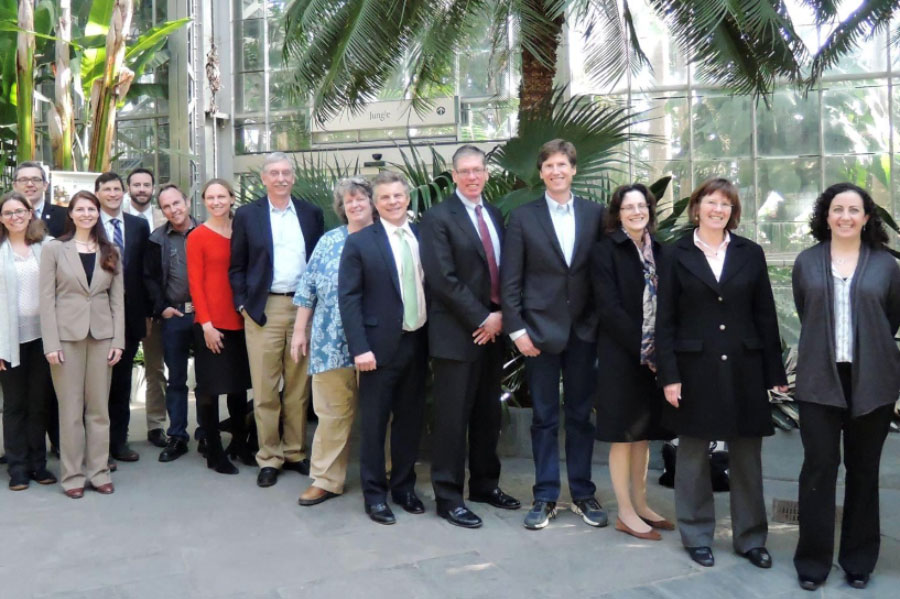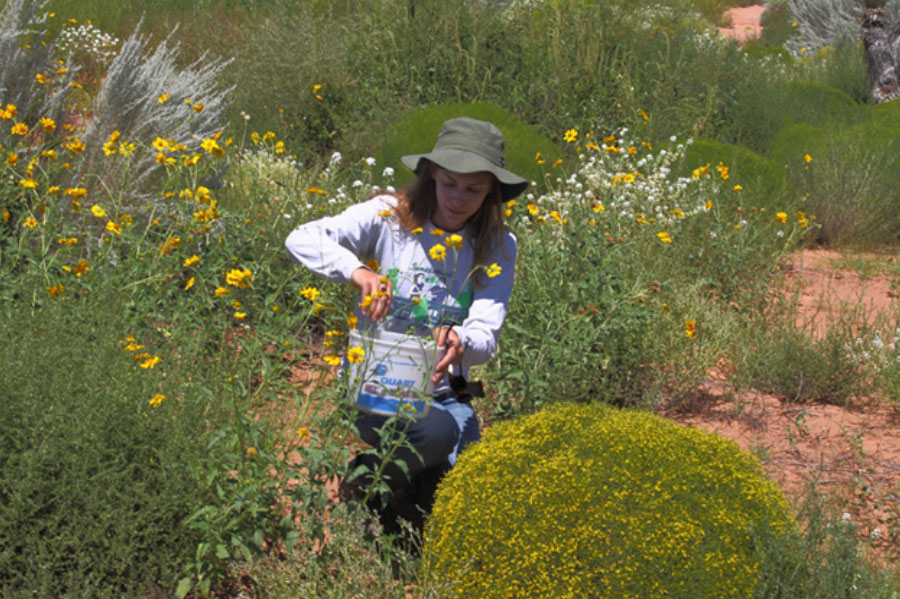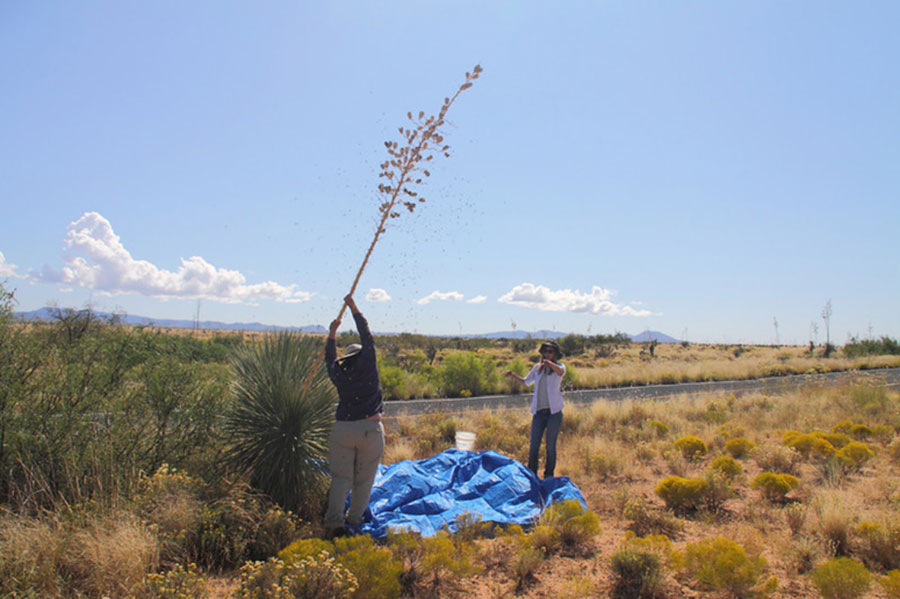Backing the Botany Bill
Plants are fundamental to human life on earth. They play a central role in how we address climate change mitigation, land management, sustaining ecosystem services, and other key issues that will determine the future of our planet. Yet, federal agencies are losing botanists to retirement without adequate replacements, native plant growers face a destabilized industry due to fluctuating demand exacerbated by wildfires, and funding for research on native plants is increasingly challenged.

A 2010 assessment led by Chicago Botanic Garden (the Garden) and Botanic Gardens Conservation International-US reported a precipitous decline in botanical capacity within government, academic institutions, and private institutions in the U.S. Following the report, the Garden and their partners began a new project exploring ways to reverse this decline.
The 2010 report included many recommendations. Implementing them, however, would require work to influence national policy. Fortunately, the Garden’s conservation department is known as the Negaunee Institute of Plant Conservation Science and Action – acknowledging that conservation research alone is not effective if it does not influence policy. Dr. Kayri Havens, the department’s director, has a personal passion for raising awareness of plants in the political realm. After spending five years working on an endangered plant for her dissertation (Organ Mountain evening primrose, pictured above), she concluded that, “Although I knew the plant very well, I’d done virtually nothing to help conserve it. … Science alone can’t save plants; we also need conservation laws, policy, and funding to be effective.”
With prospective legislation in hand, the next step was to convince congressional supporters to sponsor the bill. The Garden found a committed sponsor in U.S. Congressman Mike Quigley (IL-5), a former member of the Cook County Board, which oversees the Chicago Botanic Garden. Familiar with the Garden’s work, he was the first sponsor. Co-sponsors in Congress include Congresswoman Ileana Ros-Lehtinin (115th Congress) and Congressman Francis Rooney (116th Congress) – both from Florida. In the Senate, colleagues from Lyon Arboretum connected with Senator Maisie Hirono of Hawaii, who agreed to sponsor of the bill.
The Bill has found bi-partisan support in the House. The bill’s talking points have made it easy to connect to issues that both parties care about. Healthy plant communities provide human communities with essential services, such as purifying air and water. They facilitate cost-effective and ecologically successful land management, provide spaces for recreation, and much more. A robust native plant industry helps create jobs and supports rural livelihoods.
The tenets of the Botany Bill fit squarely in the mission of a large number of botanical institutions. Many partners – especially the Garden Club of America – have been active in recruiting more U.S. Representatives and Senators. CPC organizations, including the Institute of Applied Ecology, Nature Serve, the Native Plant Conservation Campaign, and other botanical gardens, have promoted the bill in visits to their elected officials. The Garden and CPC have also engaged in outreach efforts at professional conferences over the past few years, providing information to gardens about how to advocate and lobby and addressing the concerns of non-profits.

To pursue these goals, in 2015 the Garden held a meeting of several members of the Non-Federal Cooperators Committee of the Plant Conservation Alliance to discuss advocacy efforts to increase botanical capacity. Rob Bradner, the Garden’s lobbyist, suggested that the group draft a bill – what would become the Botany Bill (HR 1572 and S2384). The proposed legislation provides talking points for advocates to bring up with members of Congress to familiarize them with the issues. Although committed to passing the entire bill, the Garden also recognizes that it can focus on getting key parts of the bill enacted as opportunities arise in Washington.
The Botany Bill has three main purposes. First, the bill addresses the lack of human capacity in federal agencies. The proposed legislation will promote the hiring of additional botanists and create a student loan forgiveness program for plant sciences majors who work for a federal agency. Second, the bill increases grant funding for research on native plants. Specific areas of focus include habitat restoration, developing methods for using locally adapted native plants, combating invasive species, and mitigating environmental change. Finally, the bill promotes the planting of native plants by creating a preference policy for their use on federal lands. The resulting boost in demand will help develop the market for native plant materials.

Broader awareness campaigns are also part of the Garden’s efforts. Dr. Havens points out that getting laws, policies, and funding “requires convincing the public, especially voters, that plants are not optional.” Reaching members and the public is another way in which partner gardens’ support and advocacy have helped advance the Botany Bill.
Overall, Dr. Havens is optimistic about our progress. Though the public and policymakers are currently focused on many big issues, it is crucial that the environment not be ignored at this time. Everyone, after all, depends on plants. Many people, including elected officials, care deeply about the issues raised by the bill and are committed to seeing it enacted, in whole or in pieces.
We encourage you to educate yourself further and help spread the word by visiting the Botany Bill website.